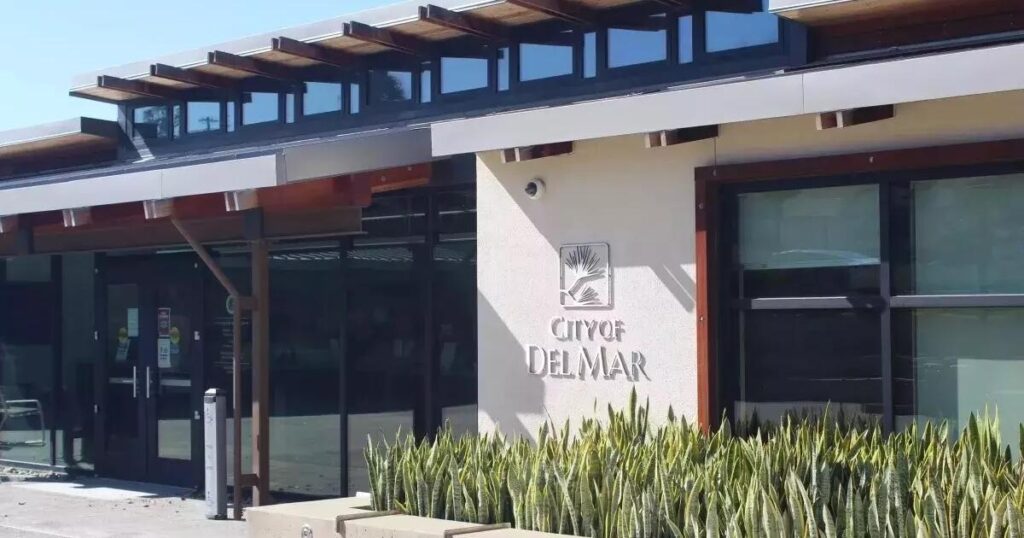
The Del Mar City Council decided March 18 to postpone a vote on two zoning changes that are required for the city to meet state-mandated housing goals.
Following a two-hour discussion with city planners and the city attorney, council members decided to push the vote back to their April 1 meeting, just ahead of a late April deadline to update the zoning.
The zoning changes would accommodate 20 dwelling units per acre in the city’s Central Commercial zone, located on 56 parcels along Camino Del Mar in downtown, and Public Facilities zone, located on city-owned land on 10th and 28th streets that can accommodate seven affordable units.
Del Mar Deputy Mayor Terry Gaasterland and Councilmember Tracy Martinez were concerned that developers could find a way to circumvent height limits, potentially blocking views of surrounding properties. The city’s Planning Commission, which voted 3-0 in February to recommend the zoning changes to the council, had also expressed those concerns.
Both zones have maximum height restrictions of 26 feet, or 14 feet for buildings facing west along Camino Del Mar.
“This action is not granting anybody to come in and develop at unlimited heights, it’s not providing for any development to block public scenic views,” Del Mar Principal Planner Amanda Lee said. “That’s all going to be addressed at project, site-specific, context-specific review level.”
City staff also emphasized that council members already agreed in principle to the Central Commercial and Public Facilities zoning changes when they approved the latest housing element, which covers 2021 to 2029 and lists a timeline for all zoning changes to meet state-mandated housing goals.
Council members also discussed the risk of the city’s housing element being decertified by the state’s Department of Housing and Community Development if the two zoning changes aren’t implemented. The city achieved certification for its housing element last year after an extensive back-and-forth with HCD officials over multiple years.
If the housing element lost its certification, the city could be subject to by-right development, which can supersede local zoning and isn’t subject to review by the Design Review Board or the Planning Commission. The council and city planners would only be able to enforce a relatively limited set of “objective” standards.
“When you’re decertified, it’s fair to say that HCD gets to write their own rules and a lot of your deliberations and considerations kind of go out the door at that point in time,” City Attorney Ralph Hicks said.
Del Mar City Councilmembers Dwight Worden and Dan Quirk said they felt prepared to proceed with the vote. They both said they oppose state laws that inhibit local control, but the proposed zoning changes were the best the city can do.
But the council needed a four-fifths supermajority to implement all the necessary changes. With Del Mar Mayor Dave Druker recused because he lives within 500 feet of the proposed zoning changes, the council needed a unanimous 4-0 vote. Since they were split on needing more information to proceed, they voted 4-0 to postpone the vote.
“Often, prevention of a step backwards is as important as a step forward, and that’s kind of what we’re doing here,” Worden said. “This is the most palatable option that we have.”